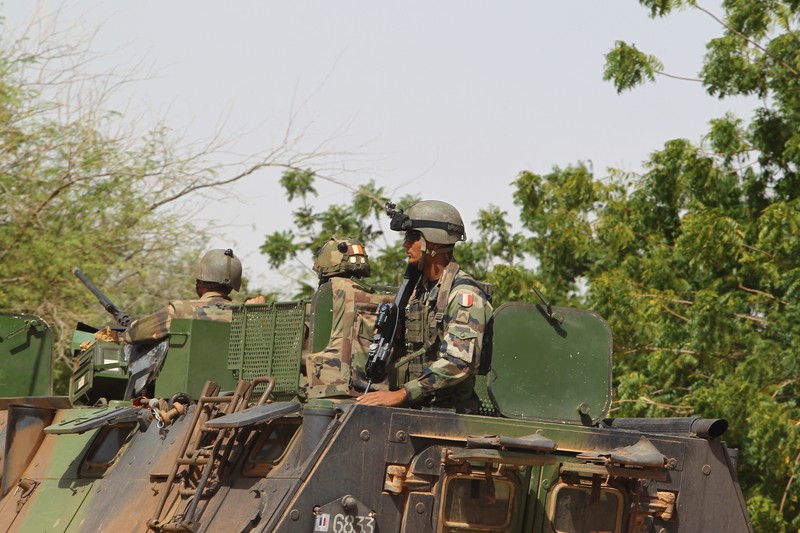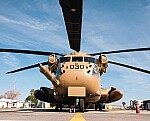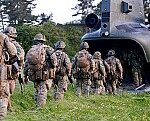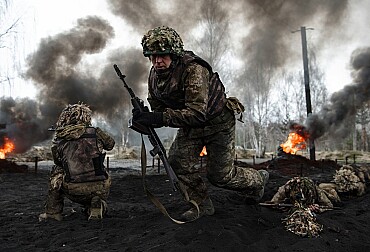France sent more troops to New Caledonia. Independence riots play into China's hands
Seven dead, hundreds arrested and many buildings destroyed and cars burned. This is the record of the latest pro-independence riots in the Pacific French territory of New Caledonia. The violent protests have been sparked by a section of the indigenous Kanak population, who oppose the proposed extension of voting rights to people of European descent. A state of emergency was in force in the country, which the government in Paris has already ended and has deployed an additional 480 members of the security forces to keep the peace. At the same time, the ban on the TikTok app, which the authorities say was imposed because of the convening of protests and possible outside influence, particularly from China, has been lifted on the island.

Violent protests by indigenous people in the Pacific state have brought back memories of the colonial era. Although most overseas European countries have gained independence throughout history, France in particular has had a fundamental attachment to several of them. Nor does it want to lose influence in New Caledonia, where it has sought to strengthen immigrants' rights through electoral reform. The latter envisages extending the possibility of local elections, which have hitherto been reserved for natives and residents who arrived before 1998 and their descendants. The Electoral Act was designed to protect the indigenous Kanak minority, who make up over 40 per cent of the local population.
Therefore, in mid-May, a section of Melanesian Kanaks decided to take to the streets to send a clear signal of disapproval to French rule. But the protests quickly turned ugly and for two weeks the streets of the capital Nouméa were filled with gunfire and explosions. Demonstrators attacked police officers and everything that symbolizes the French leadership. Of the seven dead, four were Kanaks and two French gendarmes, one of whom died, probably accidentally, when his gun went off by mistake, according to the Interior Ministry.
A night curfew and a state of emergency were therefore put into effect. A further 480 gendarmes have now arrived, which, together with other police and soldiers, including a special team of French marines, brings the number of French security forces on the island to around 3,500. A significant number participated in the evacuation of tourists by military aircraft. Australia and New Zealand have also sent their own repatriation flights out of concern for possible harm to their citizens on holiday or working on the island.
"President Emmanuel Macron has decided not to renew the state of emergency, illustrating Paris's desire to start the de-escalation process and re-establish conditions for dialogue," the Elysee Palace's decision not to extend the state of emergency and allow a meeting with the main pro-independence opposition party, the Kanak Social Front for National Liberation (FLNKS), according to Reuters. "The removal of roadblocks and blockades is a necessary condition for the start of concrete and serious negotiations," Macron added, according to the statement, referring to roads still blocked in some areas and burning barricades that prevent food and medicine supplies across the island.
Both China and Azerbaijan
The FLNKS, which has distanced itself from the violence, also wants to act. "The priority is to defuse tensions and the only viable solution is one that is political and non-oppressive," Reuters quoted the party as saying. "We remain mobilized, keeping vigilant resistance in our neighborhoods in a structured and organized way," Christian Tein, a roadblock organizer with a group called the Cell for the Coordination of Actions on the Ground (CCAT), was then quoted as saying.
With the end of the state of emergency, the ban on the Chinese social network TikTok also ceased to apply. The French decided to impose it because of what they say is the convening and coordination of violent protests via this app. This was also due to concerns about the involvement of foreign players. On the one hand, China, as the owner and controller of this network, which is so popular with young people, not only in the West, and at the same time gradually banned precisely because of security concerns. Beijing has its own strategic and economic interests in the whole region and the theoretical end of French domination and thus the possibility of extending its influence into new territory is an attractive option that is rarely used by the communist regime.
The latter is perhaps less likely, however ultimately logical to an outside observer, namely Azerbaijan. A remote Caucasus country with a number of problems of its own, it has a long-standing dispute with France over what it considers its excessive support for its hostile neighbour Armenia. Azeri forces of influence have therefore ensured that the protests have seen Kanaks flying Azerbaijani flags and waving posters of President Aliyev, among other things. This was also noticed by the local state television ITV, which wished New Caledonia to fight for independence. But official Azeri sources strongly deny the involvement of state forces in the protests and violence.
New Caledonia was named by James Cook after the old name for Great Britain after its discovery in 1774. It has been part of France since its annexation by Napoleon III in 1853, and was subsequently made a penal colony. During World War II, as part of Free France, it then became an important Allied base during the Nazi occupation of the mainland homeland. Not only the third largest nickel deposit in the world, the main island and several smaller surrounding ones make for an interesting opportunity for trade. An opportunity that France will not want to let any of its global competitors take away. Restoring peace has thus become a high priority.









